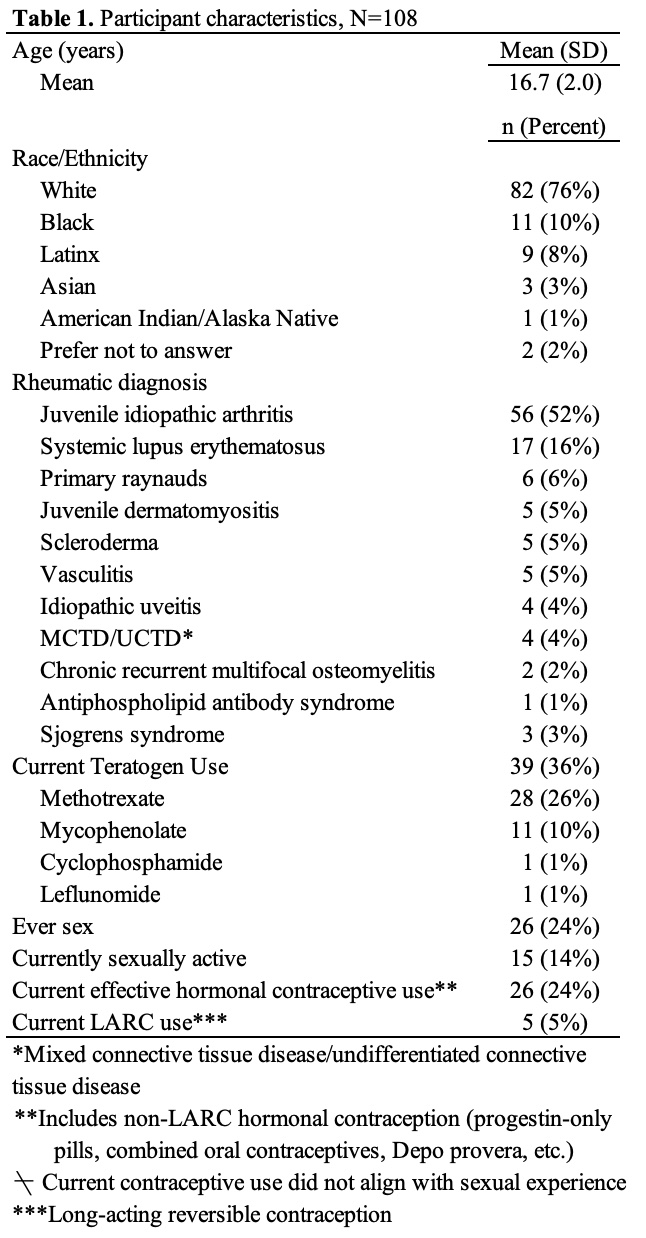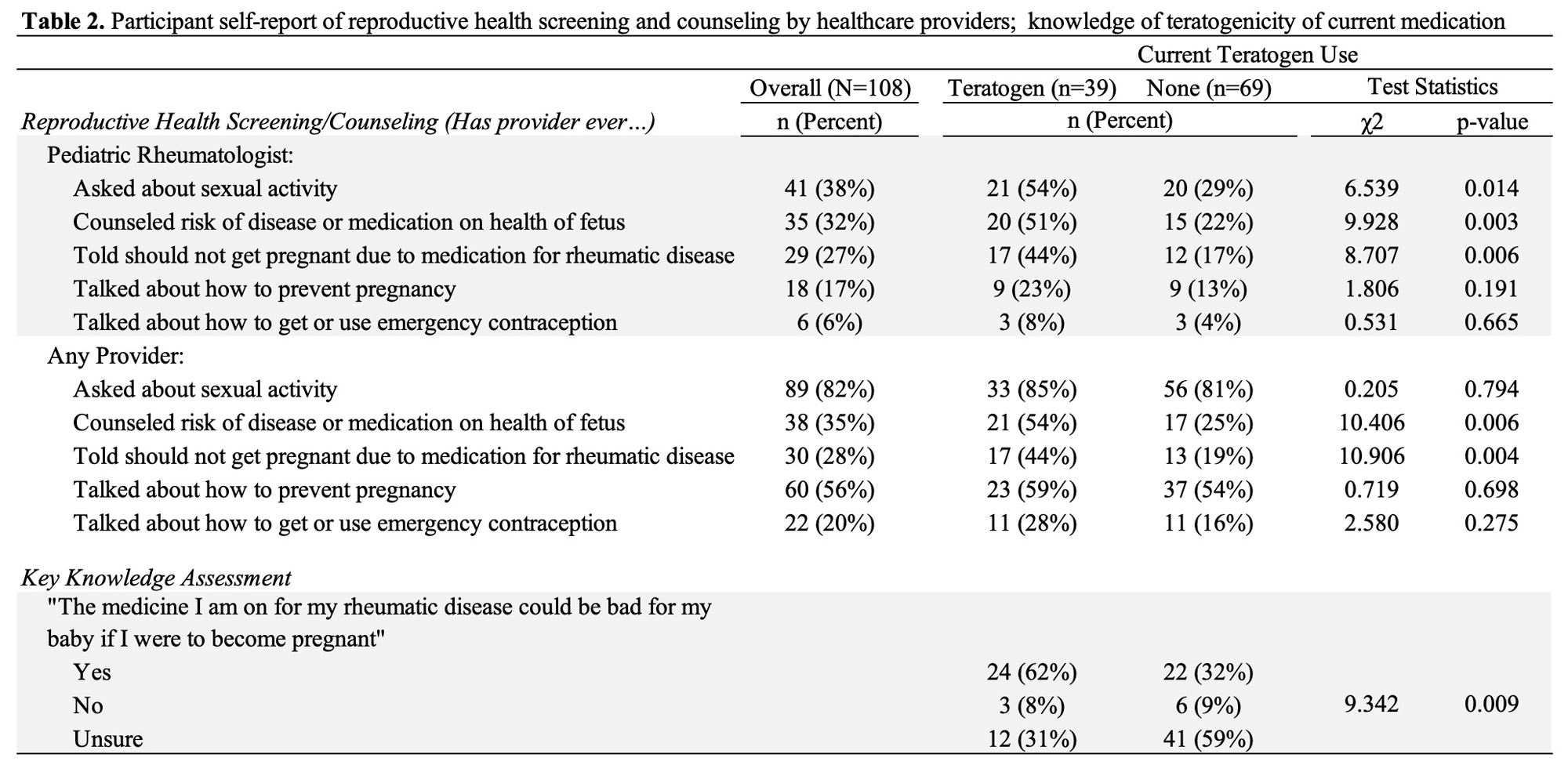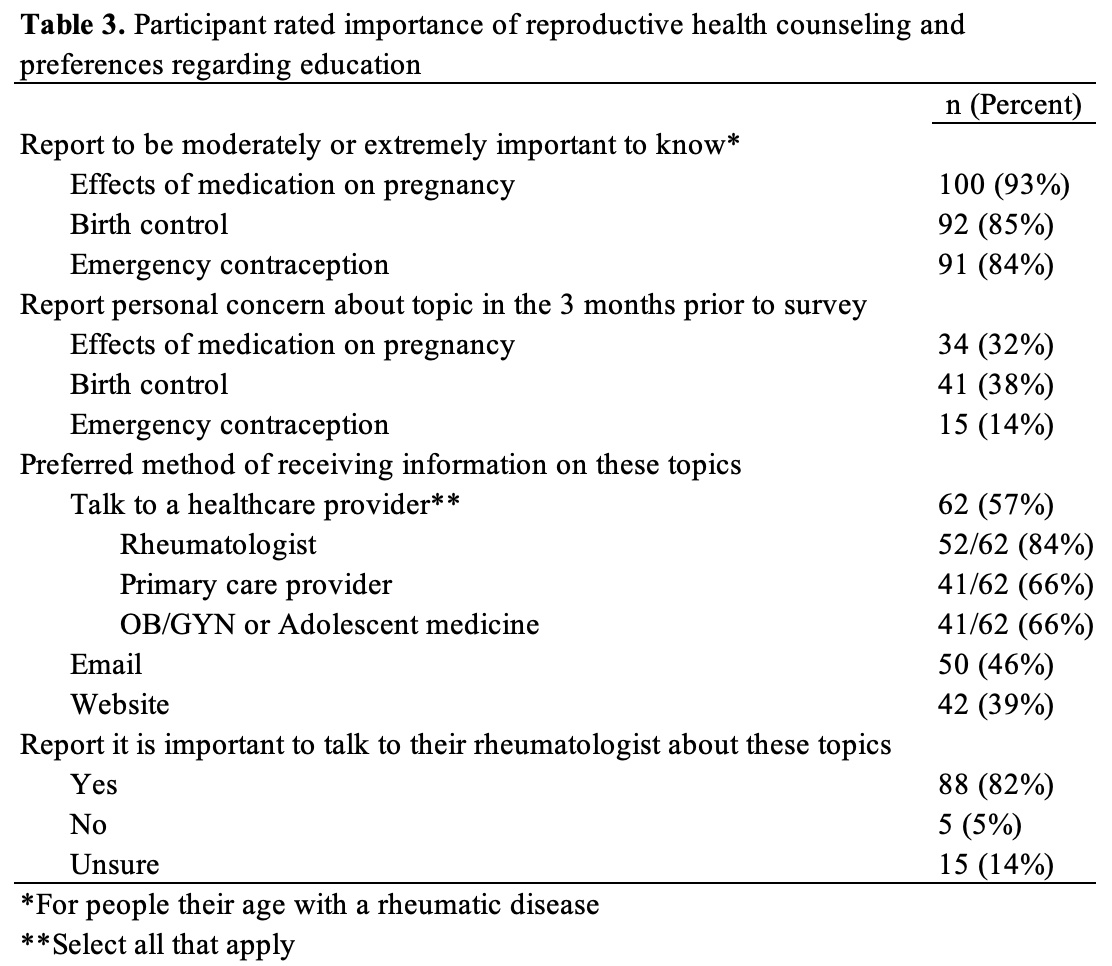Session Information
Session Type: Abstract Session
Session Time: 4:00PM-5:30PM
Background/Purpose: Adolescents and young adults (AYAs) with rheumatic disease are at high risk of poor reproductive health outcomes due to disease-related risks and teratogen use. We describe patient reported counseling on sexual and reproductive health (SRH) related to rheumatic disease among an AYA population.
Methods: AYAs ages 14-26 years and assigned female at birth were recruited from pediatric rheumatology clinics at a Midwest tertiary care center. Participants completed a one-time online survey assessing SRH behaviors and counseling. Diagnosis and medication were extracted from the EMR. Data were analyzed using descriptive statistics.
Results: The 108 participants were 14-23 years old (mean 16.7 +/- 2.0). 24% reported ever having sex. 36% were on a teratogen (excluding NSAIDs). (Table 1)
Among all participants, we found low rates of reported screening for sexual activity by pediatric rheumatologists (38%). Few reported discussions regarding pregnancy prevention (17%) or emergency contraception (EC, 6%); more participants reported counseling by any provider (56% and 20% respectively, Table 2). Sexual activity screening was associated with current teratogen use (Χ2=6.539, p< 0.05). EC counseling was associated with older age (18.3+/-2.7 vs 16.6+/-2.0 years, p< 0.05) but not teratogen use or sexual activity. Pregnancy prevention counseling was associated with none of these factors.
Among AYAs on teratogens, 54% reported screening for sexual activity by pediatric rheumatologists. Only 51% reported receipt of counseling regarding the risk of their disease or medication on the health of a fetus if they were to get pregnant, and 44% regarding counseling to avoid pregnancy due to their medication. We found similar rates when asked regarding counseling by any provider. We found gaps in counseling of patients on teratogens regarding pregnancy prevention and EC, which they largely received from non-rheumatology providers. (Table 2)
Notably, among those on teratogens only 62% knew their medication was teratogenic. Those not on teratogens were largely unsure of the teratogenicity of their medications, and 9% inappropriately reported that their medications were teratogenic. (Table 2)
AYAs reported these topics of high importance for young people with rheumatic disease to know, and many reported recent concerns on these topics. They preferred to receive information in person from their rheumatologist, and 82% agreed it is important to talk to their rheumatologist regarding these topics. (Table 3)
Conclusion: AYAs with rheumatic disease report low levels of reproductive health screening and counseling by their rheumatologist yet report these topics are important and want to discuss them. Gaps in knowledge were identified among teratogen users. This study identifies a need for improved communication with AYAs regarding their sexual and reproductive health.
To cite this abstract in AMA style:
Huynh B, Ott M, Tarvin S. Adolescent and Young Adult Rheumatology Patient Reports of Reproductive Health Screening and Counseling in the Clinical Setting [abstract]. Arthritis Rheumatol. 2023; 75 (suppl 9). https://acrabstracts.org/abstract/adolescent-and-young-adult-rheumatology-patient-reports-of-reproductive-health-screening-and-counseling-in-the-clinical-setting/. Accessed .« Back to ACR Convergence 2023
ACR Meeting Abstracts - https://acrabstracts.org/abstract/adolescent-and-young-adult-rheumatology-patient-reports-of-reproductive-health-screening-and-counseling-in-the-clinical-setting/



